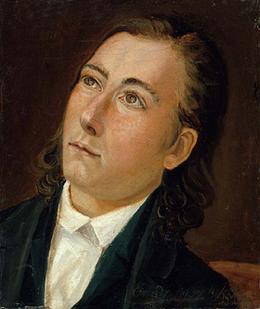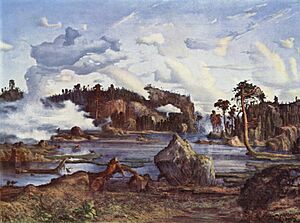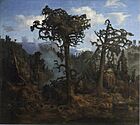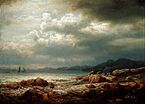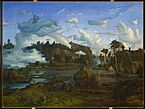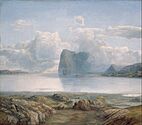Lars Hertervig facts for kids
Lars Hertervig (born February 16, 1830 – died January 6, 1902) was a famous Norwegian painter. He is known for his unique and almost dream-like paintings. Many of his artworks show the beautiful coastal areas of Ryfylke in Norway. People consider his work to be some of the best in Norwegian painting history.
Lars Hertervig's Life and Art
Lars Hertervig was born in 1830 on Borgøy island in Tysvær, Norway. This area is on the west coast of Norway, north of Stavanger. His family were poor farmers.
Hertervig began studying painting in 1852. He attended the Arts Academy of Düsseldorf in Germany. There, he was a private student of the famous artist Hans Gude. Hertervig is connected to the Düsseldorf school of painting, a group of artists known for their landscape art.
In 1854, Lars Hertervig became very ill. He had to move back to the Stavanger area. In October 1856, he went to Gaustad asylum for treatment.
For the last 30 years of his life, Hertervig faced many money problems. He eventually ended up living in a poorhouse. He could not afford expensive oil paints or canvases. Because of this, many of his later works are watercolors and gouache. He often painted on paper that was not meant for art. Sometimes, he even glued bits of paper together with homemade paste.
Lars Hertervig's art became truly famous after he died. His big breakthrough happened at the 1914 Jubilee Exhibition in Kristiania (now Oslo). This was twelve years after his death in Stavanger.
Gallery
 | Misty Copeland |
 | Raven Wilkinson |
 | Debra Austin |
 | Aesha Ash |


